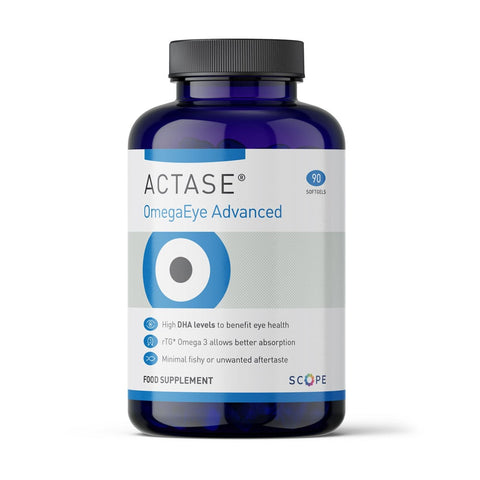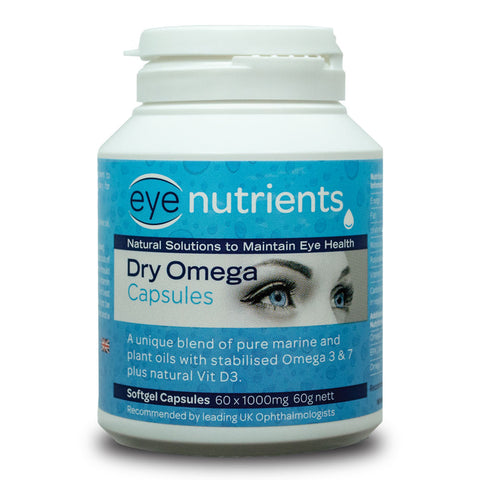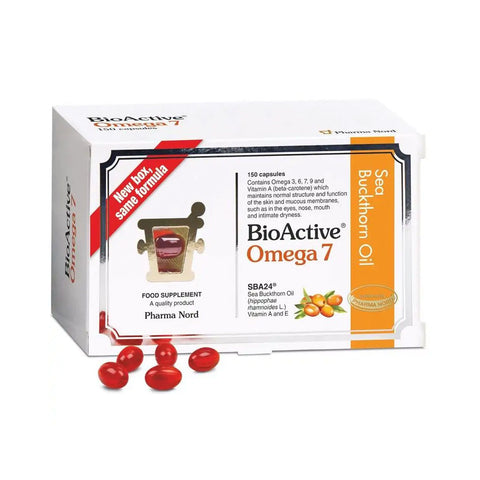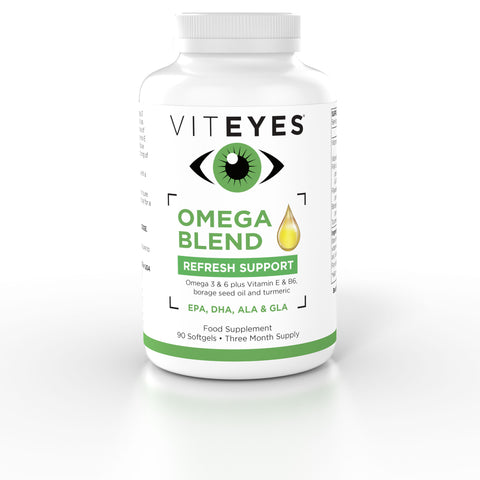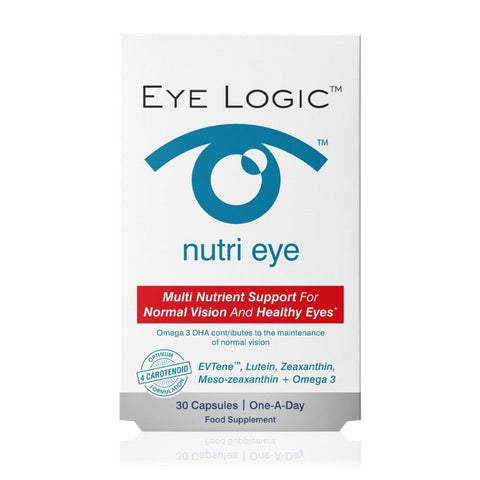Supplements for Dry Eyes
Over the years there have been numerous studies which have shown there is a direct link between dietary intake of omega 3 and dry eye symptoms:
The more omega 3 in the diet the lower the symptoms of dry eyes
The only contentious issue is the type of omega 3 that will work best:
- DHA (docosahexaenoic acid) which contributes to the maintenance of normal vision
and EPA (eicosapentaenoic acid) both from fish oil
or - ALA (Alpha Linolenic Acid) from flaxseed oil
Other ingredients thought to help reduce dry eye symptoms are those with antioxidant or anti-inflammatory effects. Also certain vitamins and minerals can work in synergy with the body to help maximise the effects of the omega 3 oils.
Supplements for Dry Eyes
